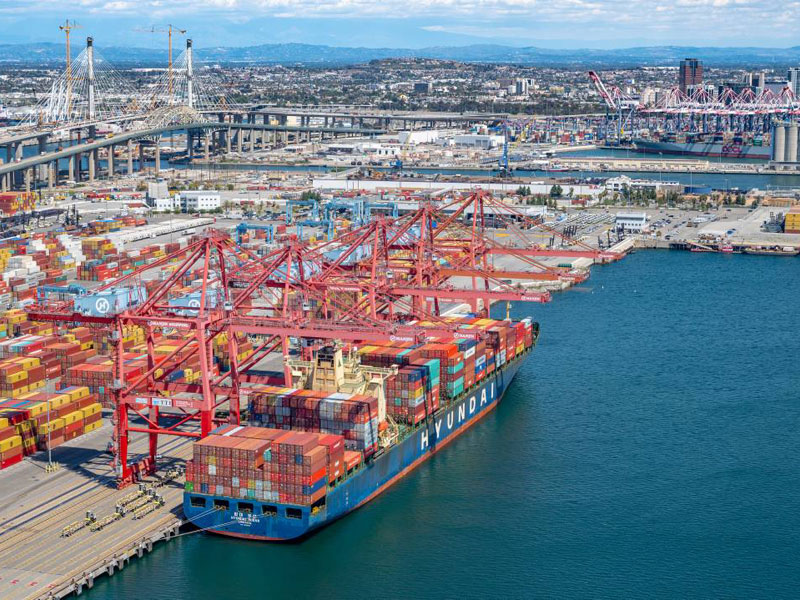Coronavirus, reduced consumer demand continue to impact trade
The COVID-19 pandemic continued to drive down demand for goods in the second quarter of 2020, leading to an increase in canceled sailings and a decline in cargo containers shipped through the Port of Long Beach in June.

Economic uncertainty brought by decreased consumer spending and ongoing health concerns amid the COVID-19 epidemic contributed to a drop during the first half of 2020, with cargo shipments at 3,433,035 TEUs, 6.9% less than the same period last year.
“Canceled sailings continued to rise at a rapid rate in the second quarter as ocean carriers adjusted their voyages to a decline in demand for imports during the national COVID-19 outbreak,” said Mario Cordero, Executive Director of the Port of Long Beach. “The economic challenges may persist for some time, but the Port of Long Beach continues to invest in infrastructure projects that will meet the needs of our customers.”
The San Pedro Bay ports complex – Long Beach and L.A. combined – had 41 canceled sailings in the first half of 2019. This year it was 104 – 37 of which were destined for the Port of Long Beach.
Canceled sailings are projected to significantly recede as the traditional holiday peak shipping season ramps up during the third quarter. The San Pedro Bay ports anticipate five canceled voyages over the next three months -- one of which was scheduled for the Port of Long Beach. No blank sailings were reported by both ports during the same period last year.
Despite overall cargo declines in June, the Port of Long Beach achieved a “triple crown” last month, when three separate terminals and the ILWU workforce reached new levels for each terminal’s ship-to-shore cargo moves.
“Our overall cargo numbers may be down, but records continue to be broken thanks to the hard work and collaboration of terminal operators and dockworkers,” said Long Beach Harbor Commission President Bonnie Lowenthal. “The economic recovery is going to take some time, but we are optimistic for the future of the Port and our partnerships with labor and the entire goods movement industry.”










